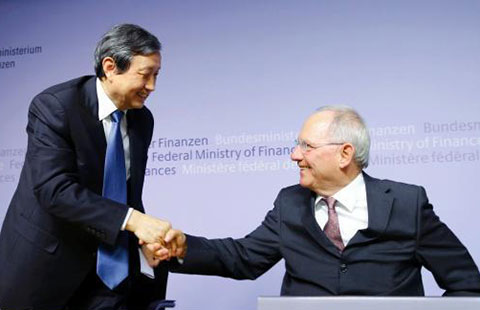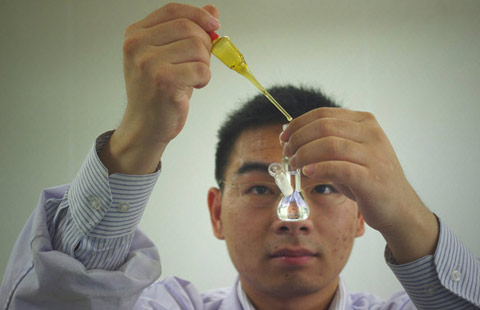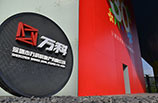Hi-tech upgrade continues apace
By Qiu Quanlin (China Daily) Updated: 2015-03-19 09:53Pearl River Delta cities spend big on updating manufacturing model, reports Qiu Quanlin.
An increasing number of companies in Dongguan and Foshan - two major manufacturing cities in the Pearl River Delta in Guangdong province - have been busy upgrading their businesses by introducing smart equipment to replace what have historically been huge workforces.
According to the mayor of Dongguan, Yuan Baocheng, around 60 percent of traditional manufacturers in the city have already introduced the latest robot technology.
"The move is aimed at building a new development model for the manufacturing sector, which has been under pressure for some time from changing global market conditions, as some countries are reshoring their overseas operations rather than either producing in or buying from overseas," said Yuan.
The upgrading of equipment and technology accounted for more than 70 percent of Dongguan's total local corporate spending last year, according to Yuan, the sixth year in a row it has increased.
The city of around 8 million people has relied heavily on labor-intensive manufacturing for its economic development in past years, particularly with money coming from Hong Kong and Taiwan, and Yuan said the sector will become no less important in the years ahead.
But its success will only be guaranteed with sustained investment in modernizing its industrial chain.
"Advanced equipment and technology will play a vital role in upgrading traditional manufacturing into an advanced industry," he said.
According to the most recent local government work report, the added value of advanced and high-tech manufacturing in Dongguan increased 13.9 percent and 16.3 percent year-on-year, respectively, in 2014.
By the end of last year, the city had developed 23 new research and development institutions and established a robot industrial base and a venture capital investment foundation, the report said.
The Dongguan authorities announced a further series of measures early this year to once again encourage more manufacturers to upgrade their facilities.
"The quality and efficiency of the manufacturing industry need to be increased as many companies based in the city are still at the low or middle end of the market value chain," Yuan said.
According to local government figures, the added value - the difference between the sale price and the production cost of products - of Dongguan's overall manufacturing sector increased 22 percent year-on-year in 2014.
Under the "Made in Dongguan 2025" strategy, the city's previous labor-intensive production model "will be largely replaced by advanced equipment and technology", said Yuan.
- Israel requests to join Asian Infrastructure Investment Bank
- Chinese stocks rebound on April 1
- China, the West in Africa: more room for cooperation than competition
- Nanjing cuts taxi franchise fees
- Air China increases flights to Milan, Paris
- JD.com raises delivery charges
- Veteran corporate strategist upbeat about China economy
- L'Oreal China sales revenue up 7.7% in 2014

















